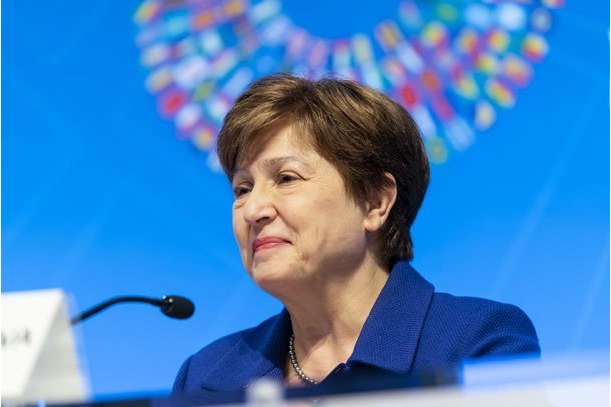Latest News
IMF calls for more ‘coordinated action’ to stabilize global economy

News Highlight
The IMF managing director stated three action areas for the global economy, namely fiscal, monetary and regulatory.
Managing Director of International Monetary Fund (IMF), Kristalina Georgieva, has called on governments around the world to work closely in coordinating policy actions to prevent a potentially long-lasting economic damage caused by coronavirus (COVID-19). In a message posted on the IMFBlog on Monday, the IMF chief stated three action areas for the global economy, namely fiscal, monetary and regulatory.
The message by Georgieva was posted on the same day the IMF published a set of policy recommendations to help guide countries in the difficult days ahead. As of 13:16 GMT on Monday, the COVID-19 – first detected in December 2019 in Wuhan, China – had killed 6,684 people and a total of 174,115 cases were recorded in 158 countries and territories, according to Worldometer.
The IMF managing director applauded the steps already being taken by governments to reduce the spread of the virus. But she said more needs to be done.
"The case for a coordinated and synchronized global fiscal stimulus is becoming stronger by the hour," Georgieva wrote, adding that fiscal stimulus by the G20 countries during the Global Financial Crisis (GFC) in 2009 alone amounted to about 2 per cent of GDP, or over $900 billion in today’s money.
In addition to expanding fiscal stimulus, the IMF chief said coordinated monetary policy by central banks will support demand and boost confidence by easing financial conditions and ensuring the flow of credit to the real economy.
On Sunday, the US Federal Reserve and other major central banks cut pricing on their swap lines to increase dollar liquidity to financial institutions around the world facing stress in credit markets.
The IMF managing director said such measures may be extended to emerging market economies. According to a report by International Finance last week, investors removed nearly $42 billion from emerging markets since the beginning of the coronavirus crisis. It is the largest outflow emerging markets have ever recorded.
Georgieva also said the crisis requires a regulatory response. She said, “Financial system supervisors should aim to maintain the balance between preserving financial stability, maintaining banking system soundness and sustaining economic activity.”
She also said the IMF stands ready to mobilize its $1 trillion lending capacity to aid its 189 member-countries. She said $50 billion will be made available to emerging and developing economies, while up to $10 billion could be made available to low-income members through IMF’s concessional financing facilities, which have zero-interest rates.
Related News
Latest Blogs
- The Museum of West African Art saga
- The complexity and complication of Nigeria’s insecurity
- Between bold is wise and wise is bold
- Prospects of port community system in Nigeria’s maritime sector
- Constitutionalism must anchor discipline in Nigerian Armed Forces
Most Popular News
- NDIC pledges support towards financial system stability
- Artificial intelligence can help to reduce youth unemployment in Africa – ...
- Africa needs €240 billion in factoring volumes for SME-led transformation
- ChatGPT is now the most-downloaded app – report
- Green economy to surpass $7 trillion in annual value by 2030 – WEF
- CBN licences 82 bureaux de change under revised guidelines






